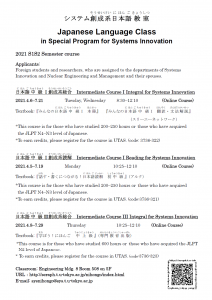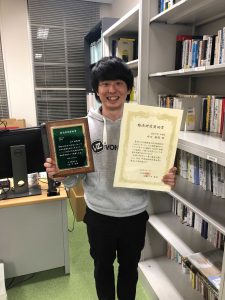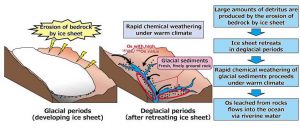2021 Degree Conferral Ceremony Winners of each award.
Dean’s Award for Outstanding Achievement, Graduate School of Engineering(Doctor)
Yuya ASHIDA (Graduated in September) /Professor Nishibayashi
Dean’s Award for Outstanding Achievement, Graduate School of Engineering(Master)
Masanori HIRANO (Graduated in September) /Professor Izumi
“SI Outstanding Graduate Student Award”
Shigeki KANEKO /Professor Yoshimura
“SI Outstanding Graduate Student Award”
Erika TANAKA /Professor Kato
“SI Outstanding Graduate Student Award”
Kazuhide MIMURA /Professor Nakamura
“Miyoshi Award” Department of Systems Innovation
Hiroaki KOSUGE /Professor Kawabata
“Miyoshi Award” Department of Systems Innovation
Yuta SHIMIZU /Professor Miyamoto
“Tamaki Award” Department of Systems Innovation
Souta NISHIDA /Professor Kato
Scholarship reward Award, The Japan Society of Naval Architects and Ocean Engineering
Kouta KISHI (Graduated in September) /Professor Shibanuma
ABS Award, American Bureau of Shipping
Daichi MITSUHASHI /Professor Kanno









